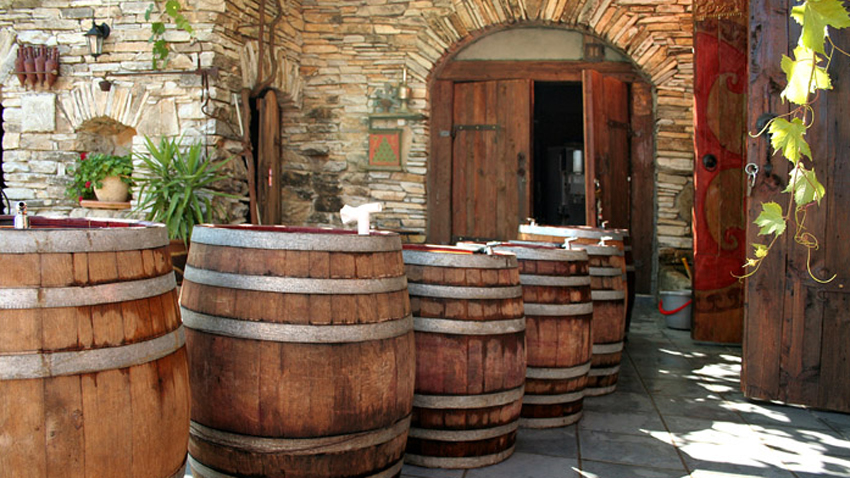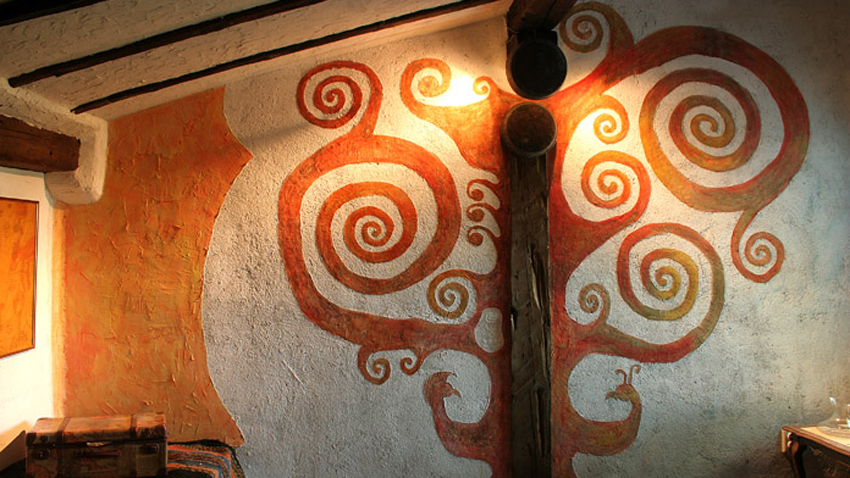Bulgarians are currently proud with the tangible heritage left by the ancient Thracians who once lived on these lands. Part of the culture of these ancient people is connected with vine growing and wine production. Thracians believed that wine was actually God who entered the human body to replace its soul. People believe that the ancient Thracians used to make a thick and aromatic wine. It was sweet and strong, because these people once wanted to reach a state of divine. Today, we can close our eyes and imagine how fragrant and tasty was the wine made of the Thracians who lived near the current village of Mezek (Southern Bulgaria), where present-day people still make and pay respect to this beverage. According to historical data, the wine made of grapes, grown in Southern Thrace, was very popular amidst the Greek and the Roman population, Director of the Regional Historical Museum in Svilengrad Elena Miteva told Radio Bulgaria and added:
“The archaeological finds which were discovered in Bulgaria prove that once the Thracian rulers loved to drink wine. Archaeologists found various vials, rhytons, jugs and other ceramic pottery. The region near Svilengrad and the village of Mezek has not been fully explored. However, archaeologists already found enough decorated wine pots. This valuable pottery is evidence of the culture of the ancient people. The tradition of wine-making has been passed through the generations and now the local population continues to produce this beverage. The first wine cellar was opened during the Ottoman period in the city of Edirne (now in Turkey). This was so, because the grapes produced in the village of Mezek and near the town of Svilengrad was mainly used by this cellar.”

 Nowadays, it is a matter of pride for the people of Mezek to have their own vineyard and make their home-made wine. Wine-making in this village is a very prestigious job. All visitors can see this with their own eyes, if they go to the wine cellar of the local wine-maker Sasho Karapeev. He put all his love into this cellar and contends that the wine made in Mezek gives health and artistic inspiration. People from near and far go to the local wine maker to taste his wine. It was made under a technology used for the production of homemade wine. Moreover, the rooms where his wine barrels rest are incredible. The walls of the cellar are decorated with symbols typical of the Thracian period. There is no machinery in the small wine-cellar and wine is close to nature, Sasho Karapeev contends and adds:
Nowadays, it is a matter of pride for the people of Mezek to have their own vineyard and make their home-made wine. Wine-making in this village is a very prestigious job. All visitors can see this with their own eyes, if they go to the wine cellar of the local wine-maker Sasho Karapeev. He put all his love into this cellar and contends that the wine made in Mezek gives health and artistic inspiration. People from near and far go to the local wine maker to taste his wine. It was made under a technology used for the production of homemade wine. Moreover, the rooms where his wine barrels rest are incredible. The walls of the cellar are decorated with symbols typical of the Thracian period. There is no machinery in the small wine-cellar and wine is close to nature, Sasho Karapeev contends and adds:
“My idea to make wine was born after I suffered a heart disease when I was nearly forty. I decided to try an alternative healing method, which occurred instinctively. Then, I made wine for the first time. The experiment turned out very successful. I made my first 60 liters of wine. Later, I was overwhelmed by the enthusiasm to make a cellar where I could keep my barrels. I thought that my wine-cellar would make good-quality wine in no less than 100 years. However, things happened very quickly. Now I welcome many tourists. I make limited quantities of wine. However, my wine-cellar has turned into a place of public significance over the past 10 years. In the beginning, I made only 60 liters of wine. Later, I made 300 liters, then 600 and now I make around 10 tons of wine per year. I made four cellars, projected under old local traditions. I never strain my wine. I let it clear by itself and never use any artificial additives. I always try to adhere to the natural methods. That is why my guests appreciate my efforts”, Mr Karapeev concludes.
English version: Kostadin Atanasov
The center of Bulgaria's town of Asenovgrad is today turning into a colorful scene of flavors, aromas and traditions, in which the spirit of the Red Wall Biosphere Park comes to life , reports BNR's Radio Plovdiv. At the “Festival of Crafts and..
"Folklore is a need for humans and this need will not disappear just like that, " says Assoc. Prof. Dr. Natalia Rashkova - ethnologist and folklorist, university lecturer and researcher with a strong contribution to the study of..
Researchers from Bulgaria and abroad are gathering in Sofia for a scientific conference. The forum will be held on October 16 and 17 in the building of the Institute of Ethnology and Folklore Studies with Ethnographic Museum at the..
"Folklore is a need for humans and this need will not disappear just like that, " says Assoc. Prof. Dr. Natalia Rashkova -..
Researchers from Bulgaria and abroad are gathering in Sofia for a scientific conference. The forum will be held on October 16 and 17 in..
The center of Bulgaria's town of Asenovgrad is today turning into a colorful scene of flavors, aromas and traditions, in which the spirit of the Red Wall..

+359 2 9336 661
